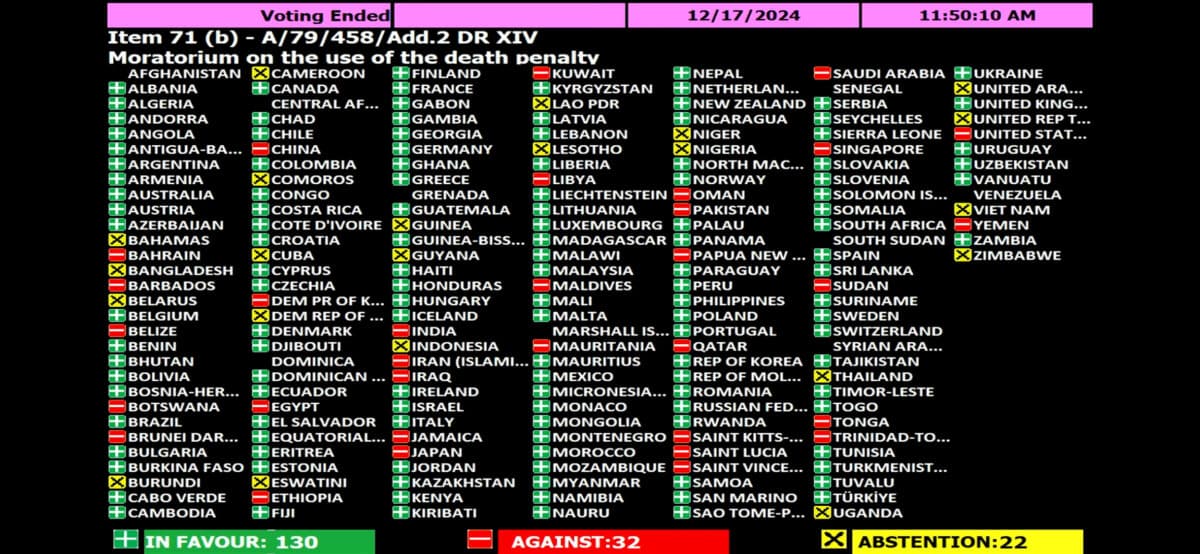The death penalty at the heart of ACHPR debates
Africa
The Commission decided to tackle the issue of the death penalty in 1999 by adopting a resolution “Urging States to Envisage a Moratorium on Death Penalty” in Kigali (Rwanda) during its 26th Ordinary Session.
Following this Resolution, the Commission decided to set up a Working Group on the specific topic of the death penalty in Africa in 2004, with a mandate, inter alia, to prepare a study on the issue of the death penalty in Africa and to develop a strategic plan for abolition on the continent.
This study was completed in 2011 thanks to the technical support of the World Coalition Against the Death Penalty and several of its members and was adopted at the 50th Ordinary Session of the ACHPR in November 2011.
On April 19, 2012, at its 51st session, the ACHPR launched this study during a ceremony attended by FIACAT, FIDH, and the World Coalition.
Strategic plan for abolition
The study highlights key strategic areas for abolition that the African Commission will implement in the coming years.
For instance, the ACHPR is to put pressure on policy makers to encourage Member States of the African Union to sign and ratify the human rights instruments that prohibit the death penalty and adopt a “Day of the abolition of the death penalty” in Africa.
Finally, the study recommends that the African Union and the States Parties “adopt a Protocol to the African Charter on Human and Peoples’ Rights on the abolition of the death penalty in Africa”.
According to Guillaume Colin, Special Advisor to FIACAT, “this is a breakthrough for African States to identify more easily with a regional legally binding instrument which they will be more inclined to ratify. Out of the 16 African States that have abolished the death penalty in Africa, only eight have ratified the only international treaty on the abolition of the death penalty: the Second Optional Protocol to the International Covenant on Civil and Political Rights”.
Angola asked to ratify the UN Protocol on abolition
During this session, the African Commission also considered the reports of Sudan and Angola. Based on the campaign tools of the World Coalition Against the Death Penalty, the Commissioners called on the Angolan government to ratify the Second Optional Protocol to the International Covenant on Civil and Political Rights, aiming at the abolition of the death penalty.
Angola abolished capital punishment for all crimes in 1992. The accession of Angola to the Protocol would have a strong symbolic value because it would demonstrate the commitment of this country for the universal abolition of the death penalty. It will then be an encouraging example at the regional level.
16 Member States of the African Union have abolished the death penalty, four of them in the last five years: Rwanda, Burundi, Togo and Gabon.
However, in 2011, 22 executions took place in three countries in Sub-Saharan Africa according to Amnesty International: Somalia, Sudan and South Sudan.







